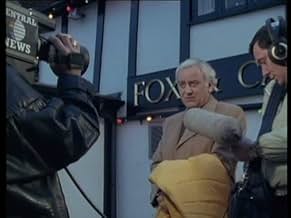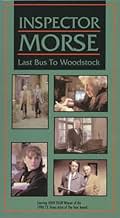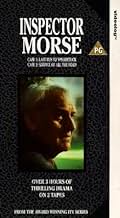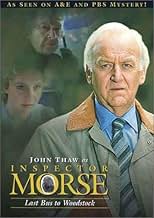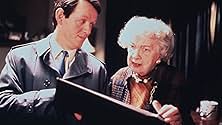A young blonde hitches a late lift from a bus stop and ends up dead in a pub car park.A young blonde hitches a late lift from a bus stop and ends up dead in a pub car park.A young blonde hitches a late lift from a bus stop and ends up dead in a pub car park.
- Director
- Writers
- All cast & crew
- Production, box office & more at IMDbPro
Storyline
Did you know
- TriviaThis is the last episode featuring Peter Woodthorpe as pathologist Max.
- GoofsAlthough the Fabia Drake character is clearly addressed as "Miss Jarman" several times and is presented as a spinster who lives alone, the end credits list her as "Mrs. Jarman".
- Quotes
[talking about deathbed confessions]
Chief Inspector Morse: The church loves a repentant sinner. Good for business.
- Crazy creditsVass Anderson is credited as Mr Bently but addressed as Mr Gill (Hardware shop owner).
Featured review
"You're going to like this one. Quite a puzzle", says Max in this adaptation of Colin Dexter's first novel. Quite right: A girl is dead, and in her purse is a mysterious envelope, empty but for a coded letter, reading "Take this, please."
One of the best Morse episodes, Last Bus to Woodstock has a plot that twists and turns, keeping both Morse and the viewer stumped until the last moment, when the dreadful truth sinks in.
Gender roles and loneliness are the recurring themes that serve as the foundation for this visit to Oxford: Among the dozens of characters introduced, all but two live hauntingly lonely lives, coping as they may -- through drinking, gambling, sex and adultery.
The first exception is an old miss Marple type. She has learned to deal with the loneliness, or even appreciate it. The second exception is Angie, a young and amiable English literature student, who has yet to face the harsh facts of life. Of course, her innocence can't last, and eventually she gets her unpleasant rite of passage into adulthood.
As often with Morse, the conclusion is only half satisfying: Although the case is closed, there's no sense of justice being fulfilled, only lives ruined, a little more misery in an already miserable world. The Inspector Morse series never drew the nicest picture of society, but in this episode, it seems particularly grim.
One of the best Morse episodes, Last Bus to Woodstock has a plot that twists and turns, keeping both Morse and the viewer stumped until the last moment, when the dreadful truth sinks in.
Gender roles and loneliness are the recurring themes that serve as the foundation for this visit to Oxford: Among the dozens of characters introduced, all but two live hauntingly lonely lives, coping as they may -- through drinking, gambling, sex and adultery.
The first exception is an old miss Marple type. She has learned to deal with the loneliness, or even appreciate it. The second exception is Angie, a young and amiable English literature student, who has yet to face the harsh facts of life. Of course, her innocence can't last, and eventually she gets her unpleasant rite of passage into adulthood.
As often with Morse, the conclusion is only half satisfying: Although the case is closed, there's no sense of justice being fulfilled, only lives ruined, a little more misery in an already miserable world. The Inspector Morse series never drew the nicest picture of society, but in this episode, it seems particularly grim.
Details
- Release date
- Country of origin
- Official site
- Language
- Filming locations
- Production companies
- See more company credits at IMDbPro
Contribute to this page
Suggest an edit or add missing content

